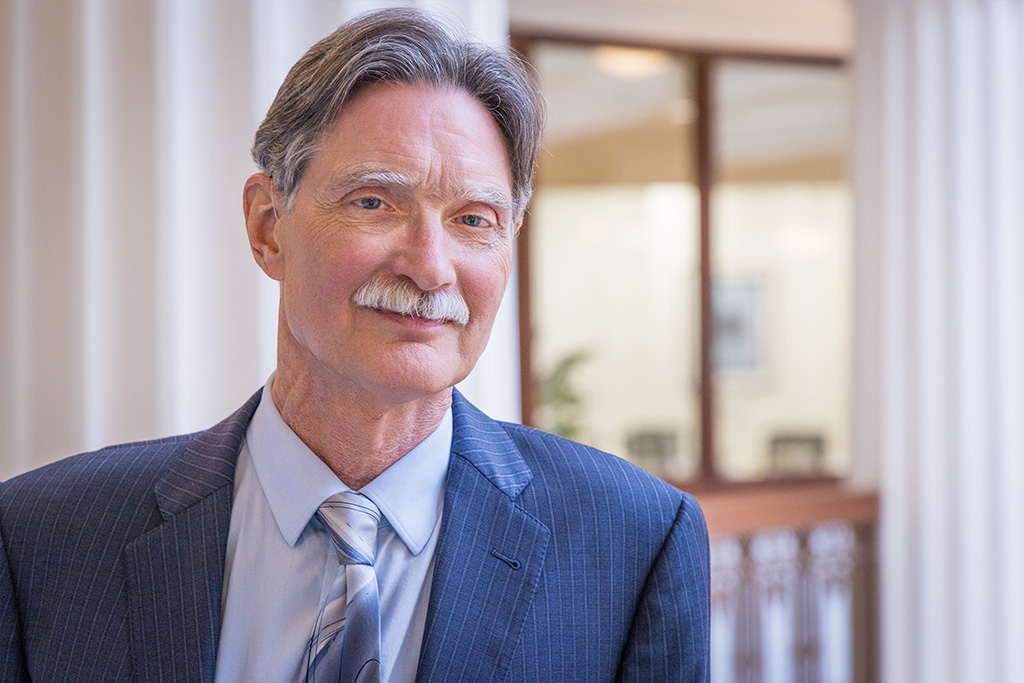George C. Harris

Partner
(510) 906-4903 | gharris@nortonlaw.com | VCF
After graduation from Yale Law School, where he was an editor of the Yale Law Journal, and a clerkship on the United States Court of Appeals for the First Circuit, George Harris began his career in San Francisco at the firm of Altshuler & Berzon. He then moved to Morrison & Foerster, where he became a partner in 1990, and joined the Norton Law Firm in 2020. George has represented clients in a wide range of civil litigation and criminal defense matters, including many complex and high-profile cases at the trial and appellate levels in state and federal court and in commercial arbitrations, both domestic and international.
George’s civil cases include obtaining a $64 million arbitration award for a U. S. private equity firm specializing in the Asian market in a contract and fraud action against the Korea Exchange Bank and another U. S. private equity firm, a $33 million arbitration award for Marin General Hospital in a contract and breach of fiduciary duty action against Sutter Health, and a $15 million award for a man who was wrongfully imprisoned for nearly 30 years. He was part of the trial and appellate teams that successfully defended Oakland and the Oakland-Alameda County Coliseum against billion dollar fraud claims by the Oakland Raiders, which resulted in no recovery for the Raiders.
George has represented clients in a wide range of criminal defense matters, including against charges of insider trading, bid rigging, perjury, commodities fraud, tax evasion, money laundering, and immigration fraud. His criminal defense matters have included obtaining habeas exonerations and releases of clients wrongfully convicted and imprisoned on life sentences for murder, and obtaining reversal of false statement and immigration fraud convictions that allowed a client to retain citizenship and avoid deportation. He was part of the team that defended John Walker Lindh, known as the “American Taliban.” He also served as Associate Counsel at the Office of Independent Counsel Lawrence A. Walsh, where he was appointed for the Iran-Contra prosecution of former Secretary of Defense Caspar Weinberger.
George’s appellate cases have included representing the federal Receiver for California prison medical care in successfully opposing attempts by the State of California to terminate injunctive relief and receivership in Plata v. Schwarzenegger, 603 F. 3d 1088 (9th Cir. 2010) and 560 F. 3d 976 (9th Cir. 2009). His amicus brief on behalf of the Receiver in Brown v. Plata, 563 U. S. 493 (2011) was cited by justices as a basis for questions at oral argument. He also represented the California Citizens Redistricting Commission in successfully opposing challenges to the Commission’s redistricting maps for State senate and congressional districts in the California Supreme Court, Vandermost v. Bowen, 53 Cal. 4th 421 (2012), and in federal district court. Appellate representations since joining the Norton firm include obtaining reversal of the client’s 80-month sentence and $20 million dollar restitution award in an alleged bank fraud case, United States v. Lonich, 23 F.4th 881 (2022), and obtaining reversal of the district court’s denial of a motion to compel arbitration in a putative class action, Dekker v. Vivint Solar, Inc., 2021 WL 4958856 (9th Cir. 2021).
While George has extensive litigation and trial experience, he approaches each case as a problem to be analyzed and solved through the most appropriate strategy and tactics to achieve the best possible result for the client. This often involves negotiation and/or mediation or other forms of alternative dispute resolution. George served for many years as an Early Neutral Evaluator for the United States District Court for the Northern District of California and successfully mediated many disputes in that context.
While on leave from Morrison & Foerster, George was a tenured law professor at the University of Utah Law School, where he taught courses in trial advocacy, appellate advocacy, civil procedure, and legal ethics, and at the University of Pacific McGeorge School of Law, where he was Director of the Center for Advocacy and Dispute Resolution and Director of the Appellate and International Advocacy program and taught courses in appellate advocacy, criminal procedure, criminal law, and legal ethics.
Education
- Yale Law School, J.D., 1982
- Brown University, M.A. Teaching, 1977
- Yale University, B.A. English Literature, 1974
Bar Admissions
- California, Utah (inactive)
- United States Supreme Court
- United States Court of Appeals for the First Circuit
- United States Court of Appeals for the Ninth Circuit
- United States Court of Appeals for the Federal Circuit
- United States District Courts for the Northern, Eastern and Central Districts of California, and the District of Columbia
Clerkship
- United States Court of Appeals, First Circuit, the Hon. Frank M. Coffin
Honors and Awards
- Northern California Super Lawyer, 2007-2008; 2022-2025
